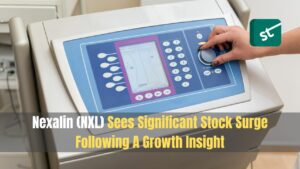In the realm of financial markets, Nexalin Technology, Inc. (NASDAQ: NXL) is currently witnessing a remarkable upward trajectory in its stock performance. As of the most recent pre-market check, NXL stock rose 12.55% to $2.42 after closing at a noteworthy $2.15 the day before, a significant 57.51% rise. The company’s announcement of an upcoming clinical study is largely responsible for this optimistic increase in share price, since it has greatly increased investor confidence.
Collaborative Clinical Trial Program
Nexalin (NXL) announced this week that it will be partnering with the University of California, San Diego (UCSD) to launch a new clinical trial. UCSD senior scientist Dr. Ming Xiong Huang plans to use his affiliation with the San Diego VA to recruit patients with traumatic brain injury (TBI).
The trial aims to assess the efficacy of Nexalin’s cutting-edge Gen-3 Halo headset within a virtual clinic framework, enabling patients to receive treatment from the comfort of their homes. This innovative approach seeks to mitigate the challenges and stigma often associated with visiting psychiatric offices or VA hospitals.
Advancements in Treatment Technology
The Gen-3 Halo headset is engineered with Nexalin’s proprietary Deep Intracranial Frequency Stimulation (DIFS) technology, employing an advanced 15 milliamp waveform. Building on the success of prior trials involving the Gen-2 15 mAmp console device, the latest model promises enhanced convenience for at-home treatment while ensuring clinical accuracy.
The upcoming study aims to replicate previous findings, which indicated significant improvements in MEG (magnetoencephalography) signals and alleviation of pain symptoms among mTBI patients.
Alignment with Veteran Care Objectives
Titled “MEG Study of the Transcranial Electrical Stimulation Treatment for Mild Traumatic Brain Injury using the Nexalin Halo Headset that Utilizes the Advanced 15 Milliamp Waveform,” the study will explore the impact of NXL’s Gen-3 Halo headset on brain function and symptom management in veterans.
Notably, this initiative aligns with the Veterans Administration’s commitment to enhancing therapeutic telehealth services for veterans dealing with mTBI, as highlighted in their 2025 Professional Judgement Budget, which allocates over $17 billion for mental health services targeting veterans.











